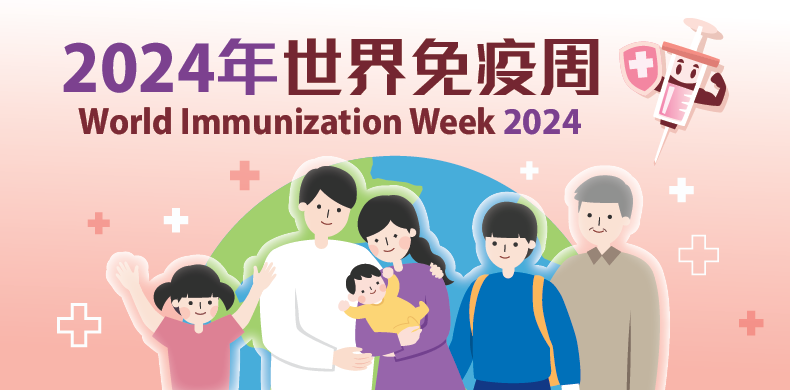
World Immunization Week is a global initiative organized by the World Health Organization (WHO) in the last week of April aiming to promote the use of vaccines to protect people of all ages against vaccine preventable diseases.
The COVID-19 pandemic severely disrupted routine immunisation programmes across the world, causing millions of children missing out on essential vaccinations against diseases. This year’s theme “Humanly Possible: Saving Lives Through Immunization” celebrates 50 years of the World Health Organization’s Expanded Programme on Immunization (EPI), recognizing collective efforts to save and improve countless lives from vaccine-preventable diseases and calling on countries to ramp up investments in immunisation programmes to protect the next generations.
50 years of the EPI: The life-saving power of vaccines
The Expanded Programme on Immunization (EPI) of the World Health Organization (WHO) was first established in 1974 to target at six high-risk infectious diseases, namely, poliomyelitis, diphtheria, tetanus, pertussis, measles and tuberculosis, with the goal of providing universal access to lifesaving vaccines for children worldwide. Over the past five decades, EPI has saved 154 million lives and benefited people of all ages in every region. Alongside reaching the children missing out on vaccines, the programme is now expanded to encompass older children, adolescents, and adults throughout the life course against a wider spectrum of diseases.
In Hong Kong, a comprehensive immunisation programme has been provided for all children since the 1960s in line with the principles set out in the EPI. As recommended by the Scientific Committee on Vaccine Preventable Diseases (SCVPD) under the Centre for Health Protection (CHP) of the Department of Health (DH), children from birth to primary six should receive different types of vaccines and boosters under the Hong Kong Childhood Immunisation Programme (HKCIP) to protect them from tuberculosis, poliomyelitis, hepatitis B, diphtheria, whooping cough (pertussis), tetanus, pneumococcal infection, chickenpox, measles, mumps and rubella. To prevent cervical cancer, eligible female primary school students are provided with human papillomavirus (HPV) vaccine. In addition to these childhood vaccines, the Government also provided immunisation against seasonal influenza, pneumococcal disease and COVID-19 for populations that are considered at risk.
#VaccinesWork
Immunisation is recognized as one of the most successful, safe and cost-effective public health interventions and protects millions of people each year globally from serious and often deadly diseases including measles, hepatitis B and even some forms of cancer. In Hong Kong, with the long-established childhood immunisation programme, poliomyelitis was eradicated locally in 2000 after global smallpox eradication in 1980, while measles and rubella were declared eliminated in 2016 and 2021 respectively.
In the last few years during the COVID-19 pandemic, progress on routine immunisation slipped worldwide and resulted in a resurgence of vaccine-preventable diseases such as measles. Despite this, parents, schools and healthcare workers in Hong Kong continued to support childhood immunisations, striving to maintain the immunisation coverage rates at a high level. As delays in vaccination will weaken the protection for the children against relevant infectious diseases, parents are reminded to maintain up-to-date immunisation for their children for timely and comprehensive protection. Parents of preschool children who have not yet received the age-appropriate vaccines are urged to make an appointment at their registered Maternal and Child Health Centres as soon as possible, or consult their family doctors for vaccination. Vaccination under the HKCIP at primary schools will be arranged by the DH's School Immunisation Teams at schools. Parents with children who are currently not residing in Hong Kong are advised to continue immunisation in their place of residence.